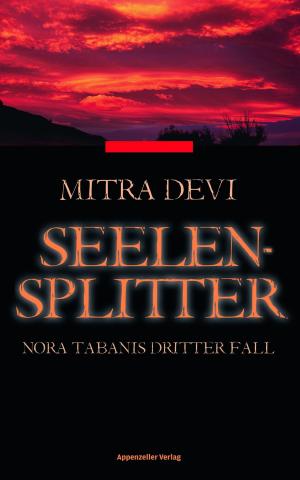| Author: | Reed Blitzerman | ISBN: | 9781515324850 |
| Publisher: | Reed Blitzerman | Publication: | October 4, 2016 |
| Imprint: | Language: | English |
| Author: | Reed Blitzerman |
| ISBN: | 9781515324850 |
| Publisher: | Reed Blitzerman |
| Publication: | October 4, 2016 |
| Imprint: | |
| Language: | English |
"This is intriguing writing, Reed, evocative, subjective, introspective--the kind I enjoy reading."
“This drew me in and held me."
Book one in a series.
The rats below are on the rise.
Separated by seventy years, Kahle Desireau and Eli Steiner are former military, still caught in the fight for survival.
One driven by love…
Kahle Desireau returns from the Bosnian War haunted by his childhood gift, seeing the "black smoke" - the auras of the dead and dying, for an attempt at a normal life.
- Meet the girl of his dreams? Check.
- Get a job in a factory? Check.
- Join a rebellion? Check.
…one consumed by desperation.
Eli Steiner has spent his life after World War I helping others. Then a yellow roadster comes to town with disaster at the wheel. The fields flake to powder beneath a relentless sun. The banks have stopped lending. And his small family farm will be caught in the tsunami known as the Great Depression.
With two futures on a collision course, seventy years is a moment in time.
Interview with the Author
Q: Why write a book as novellas?
A: First and foremost I was driven by fear. I wondered if I would ever finish writing the book. I got fifty pages or so in, and got anxious about finding the time to edit, proofread, and plan the next chapter while working a full time job. I had hoped that the confidence and encouragement from finishing the first novella would carry me to the second. And if enough readers asked for the next book, then I'd be forced to finish it. Or if, as I suspected, my work wasn’t any good, I wouldn’t have invested too much time to find out. So I'd seen authors publish in the novella format and I thought it was perfect.
The novella format also helped maintain quality control. A slow middle passage or a series of paragraphs that don't work might be acceptable casualties in a longer novel on the path to a larger word count. But I wanted to create something specific; refined and faceted, polished and burnished, so that my reader would enjoy every page. Paraphrasing Joe Hill, every sentence had to fight for existence. So I edited over and over. My mother is really my first reader. There's not a lot she misses. So when she said that several passages were boring, I spent seven months doing a rewrite. It was excruciating, but hopefully it produced a much better product.
And I placed a premium on the language. As a reader myself, the books I read over and over were books where the journey of reading was more pleasurable than the destination. I’ve read, “All The Light We Cannot See” by Anthony Doerr probably four or five times, back to back. The plot twists were only a surprise the first time. Experiencing the language was something I did over and over again. What hooked me as a reader was the magic trick of how he created the effect right under my nose. I thought maybe I could do something like that for someone else.
Q: Where did you get the idea for the series?
A: Well I'm an Army veteran. I wasn't particularly good at soldiering. But when I got out, it seemed like we were everywhere, this diaspora of ex-military members that's essentially invisible, like a society within society. What if some of them had been through some specialized training that changed them in some fundamental way we haven't seen before? And then, what if those same people were considered not worthy and kind of discarded? The results would be far-reaching but difficult to predict. The historical parallel would be the ronin, masterless samurai during the Japanese feudal period, who lost their honor.
"This is intriguing writing, Reed, evocative, subjective, introspective--the kind I enjoy reading."
“This drew me in and held me."
Book one in a series.
The rats below are on the rise.
Separated by seventy years, Kahle Desireau and Eli Steiner are former military, still caught in the fight for survival.
One driven by love…
Kahle Desireau returns from the Bosnian War haunted by his childhood gift, seeing the "black smoke" - the auras of the dead and dying, for an attempt at a normal life.
- Meet the girl of his dreams? Check.
- Get a job in a factory? Check.
- Join a rebellion? Check.
…one consumed by desperation.
Eli Steiner has spent his life after World War I helping others. Then a yellow roadster comes to town with disaster at the wheel. The fields flake to powder beneath a relentless sun. The banks have stopped lending. And his small family farm will be caught in the tsunami known as the Great Depression.
With two futures on a collision course, seventy years is a moment in time.
Interview with the Author
Q: Why write a book as novellas?
A: First and foremost I was driven by fear. I wondered if I would ever finish writing the book. I got fifty pages or so in, and got anxious about finding the time to edit, proofread, and plan the next chapter while working a full time job. I had hoped that the confidence and encouragement from finishing the first novella would carry me to the second. And if enough readers asked for the next book, then I'd be forced to finish it. Or if, as I suspected, my work wasn’t any good, I wouldn’t have invested too much time to find out. So I'd seen authors publish in the novella format and I thought it was perfect.
The novella format also helped maintain quality control. A slow middle passage or a series of paragraphs that don't work might be acceptable casualties in a longer novel on the path to a larger word count. But I wanted to create something specific; refined and faceted, polished and burnished, so that my reader would enjoy every page. Paraphrasing Joe Hill, every sentence had to fight for existence. So I edited over and over. My mother is really my first reader. There's not a lot she misses. So when she said that several passages were boring, I spent seven months doing a rewrite. It was excruciating, but hopefully it produced a much better product.
And I placed a premium on the language. As a reader myself, the books I read over and over were books where the journey of reading was more pleasurable than the destination. I’ve read, “All The Light We Cannot See” by Anthony Doerr probably four or five times, back to back. The plot twists were only a surprise the first time. Experiencing the language was something I did over and over again. What hooked me as a reader was the magic trick of how he created the effect right under my nose. I thought maybe I could do something like that for someone else.
Q: Where did you get the idea for the series?
A: Well I'm an Army veteran. I wasn't particularly good at soldiering. But when I got out, it seemed like we were everywhere, this diaspora of ex-military members that's essentially invisible, like a society within society. What if some of them had been through some specialized training that changed them in some fundamental way we haven't seen before? And then, what if those same people were considered not worthy and kind of discarded? The results would be far-reaching but difficult to predict. The historical parallel would be the ronin, masterless samurai during the Japanese feudal period, who lost their honor.















